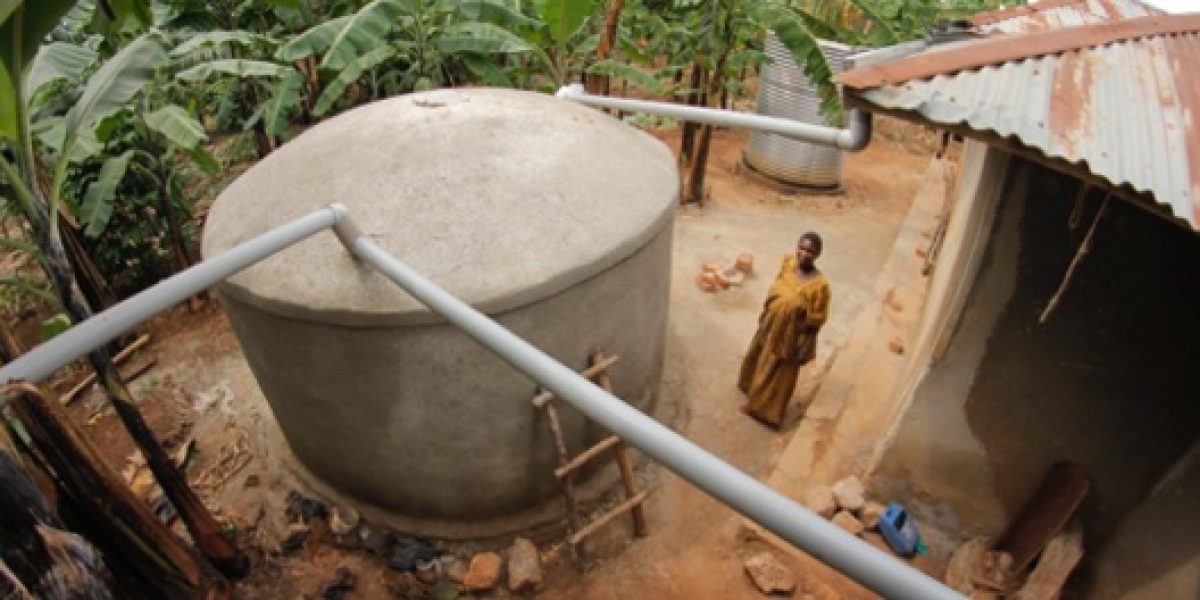Food and water are an inter-linked nexus.
The Intergovernmental Panel on Climate Change (IPCC) has predicted that by 2020, between 75 and 250 million Africans will experience climate-induced water stress and a consequent insecurity of supply. In some semi-arid regions, scenarios illustrate a 25% reduction of rainfall. As a result, agricultural production will fall significantly, and in some countries the length of growing seasons and the yield potential of rain-fed agriculture will be reduced by up to 50%. This will fundamentally alter food access, utilisation and price, and result in increased competition for scarce resources, especially in shared water basins.
Nowhere is this more evident than in sub-Saharan Africa (SSA) where population growth is predicted to reach 2.5 billion by 2050. One fifth of SSA’s current population is already facing chronic water shortages and two thirds of livelihoods are based on rural subsistence agriculture, dependent on scarce and variable water sources.
The compounding impacts of climate change and water insecurity will fall disproportionately on poor regions. Many African states have insufficient financial and institutional capacity to cope with the negative impacts associated with climate change, let alone to adapt to rapidly altering conditions. Existing development stresses increase the vulnerability of countries and further limit their capacity to adapt effectively given that available resources are deployed for competing needs.
To achieve Africa’s development objectives a commensurate and fundamental change in water management is required. One that includes governance systems for climate adaptation, developed and implemented on a far wider scale. These approaches must reduce the African farmer’s vulnerability to uncertain hydrological changes, and promote disaster risk and adaptive water management techniques.
Specific attention needs to focus on water management systems and policies that include adjustments in technologies and infrastructure, ecosystem-based approaches, basic public health measures, and livelihood diversification. Better scenario planning, learning-based approaches, and flexible context-specific solutions will also help.
In addition, and most importantly, targeted measures to manage ‘green water’ resources must be implemented on the ground. Green water describes the moisture from rain held in the soil, most of which currently evaporates before being generated into ‘blue water’ or run off to re-charge essential water systems. Green water has not received the necessary political attention it deserves, yet it plays a critical role for ensuring food security and livelihood support for millions of Africa’s small-holder farmers.
Scalable and low-cost solutions for subsistence farmers
African farmers’ dependence on rain-fed agriculture means ‘quick wins’ for a targeted focus on solutions to manage green water. This includes mechanisms to retain run-off from rainwater harvesting; as well as improved land health and soil management to allow for increased water storage and infiltration. Such methods and technologies have already proven to enhance the stability of crop yields from 1 ton per hectare to 3-4 tons from experiences in Kenya and Tanzania. These success stories showcase the ability of simple solutions to improve food security amongst communities most at risk of water related stress and shocks.
Targeted programmes and information-sharing on small-scale water harvesting methods and storage systems need to be enhanced, while public and private sector partnerships need to be further galvanised to allow for affordable solutions for subsistence farmers.
Along with these low-cost solutions there is further need for better analysis and the use of data for climate forecasting; as well as for financial buffers (such as cash transfers and weather-related insurance) systems to support a more proactive international relief and response effort in the aftermath of extreme events, such as wide-spread drought.
This week’s International Water Day provides a milestone to take account of the response measures in place for sustainable development in Africa.
Water management needs to be based on a carefully orchestrated balance between scaleable green water solutions for food production and blue water for urbanisation and economic development.
Governments and development actors need to be cognisant of the unpredictability of impacts from climate change on development, most evident in water stress. The needed response measures will not detract from Africa’s development goals, but rather enhance the resilience of farmers whilst complementing Africa’s ambitious economic agenda and sustainable development efforts.








